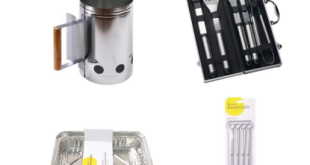 In the wake of last month’s Grenfell Tower tragedy in London, charity Electrical Safety First (ESF) has called for regular electrical checks in tower blocks – and launched a microsite to advise consumers on white goods safety.
In the wake of last month’s Grenfell Tower tragedy in London, charity Electrical Safety First (ESF) has called for regular electrical checks in tower blocks – and launched a microsite to advise consumers on white goods safety.
According to Home Office statistics, last year 1,873 fires in England were caused by white goods (such as dishwashers and fridge freezers) – equal to five fires per day.
This data is based on incidents attended by Fire and Rescue Services. Only fires caused by faulty appliances and leads and faulty fuel supplies are included.
Following confirmation from the Metropolitan Police that a fridge freezer was the initial cause of ignition at Grenfell Tower,
ESF has called on the government to provide free mandatory electrical checks for homes in tower blocks.
The charity has written to Minister Margot James (Parliamentary Under Secretary of state at the Department for Business, Energy and Industrial Strategy), calling for a new policy to ensure that housing associations and local authorities have a legal responsibility to ensure that the safety checks include fixed electrical installations and appliances per property.
ESF has also called for housing associations and local authorities to keep a register of white goods contained and operating in the blocks – regardless of tenure of the property – and to ensure that tenants have registered products.
Current government policy states that there is an ‘expectation’ on landlords to keep electrical installations safe. But on this basis, ESF says, electrics and appliances contained within social rented properties could go unchecked for many years and remain dangerous until action is taken.
ESF has put together initial costs for the operation of this policy, which fall between £48m and £60m every five years.
Martyn Allen, technical director at ESF, commented: “We’ve seen the risks that electrical appliances pose in tower blocks such as Lakanal House in 2009, Shepherd’s Court in 2016 and of course Grenfell Tower.
“Tenants have the right to live in a home that has a safe electrical installation and safe appliances supplied by the landlord.
“We believe that first and foremost, those living in densely populated areas like tower blocks must be protected. As a result we would like to see the government implement mandatory safety checks as a matter of urgency.”
ESF has launched a microsite at www.whitegoodsafety.com which advises consumers on white goods safety and gives details on how to register an appliance.
Consumers can also find advice on how to ensure their white goods are safe, and click on a searchable tool to check if any of their products have been recalled.
Which domestic appliances are most likely to catch fire*?
- 19% washing machines (482)
- 18% tumble dryers (460)
- 15% electric cookers including oven (388)
- 9% Dishwashers (238)
- 8% Fridges/freezers (208)
- 5% Extractor fans (136)
- 5% Grill/Toasters (135)
- 4% Microwaves (109)
- 4% other domestic appliances (92)
- 3% Washer dryer combos (66)
*Based on a total of 2,562 domestic appliance fires in 2015/16. Only fires caused by faulty appliances and leads and faulty fuel supplies are included in the list
ESF’s tips for safer white goods
- Buy from a reputable dealer/manufacturer. Never buy second hand white goods.
- Always register your appliance with the manufacturer so you can be notified if there’s a problem.
- Follow the manufacturer’s instructions.
- If you’re concerned about an appliance in your home, use ESF’s online product checker to see if it has been recalled.
ESF is a UK charity dedicated to reducing and preventing damage, injuries and death, caused by electricity at www.electricalsafetyfirst.org.uk
 Housewares Business-to-business magazine for housewares retailers and their suppliers
Housewares Business-to-business magazine for housewares retailers and their suppliers



